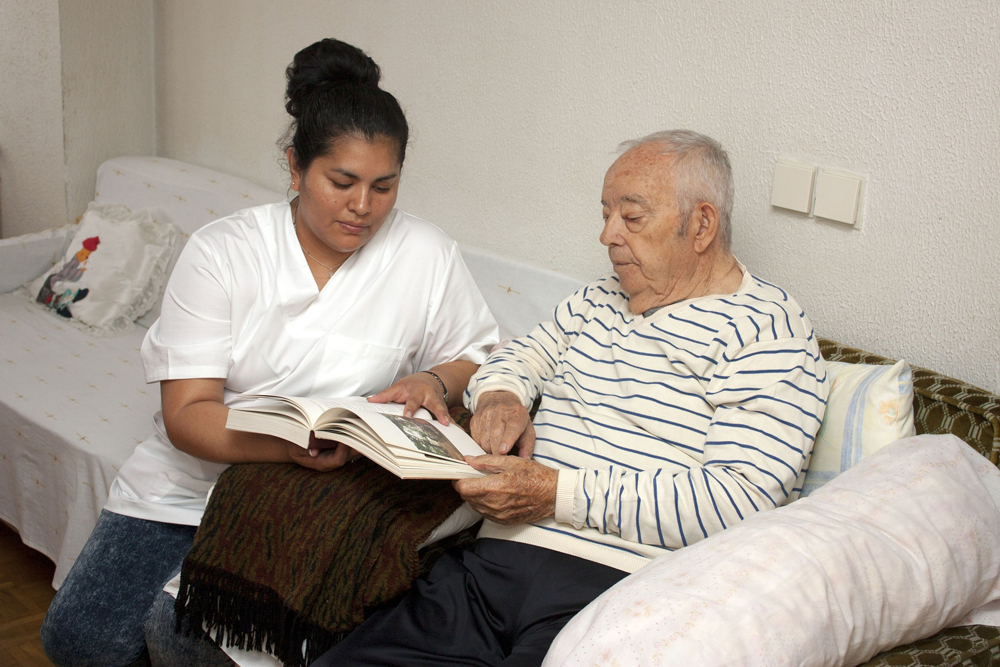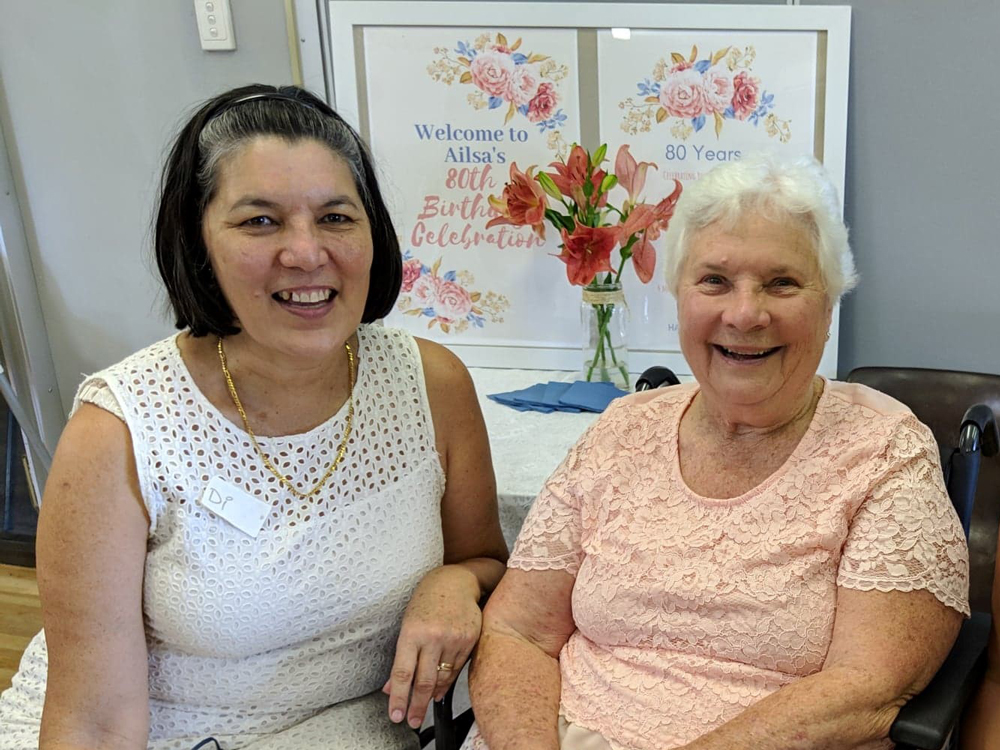Caring for an ageing parent can be emotionally draining. And one of the most emotional decisions you will have to make is the choice between supporting your loved one to age at home or finding a place in residential care.
Understandably, many older people would prefer to live at home for as long as they can, only opting for residential care when it becomes absolutely necessary. You are sometimes torn between balancing what your ageing parent wants and ensuring their safety.
Assisted living at home
According to a research paper from the Royal Commission into Aged Care Quality and Safety, the overwhelming majority of older Australians would prefer to “age in place” – that is, at home. Staying in their familiar environment means your parent can avoid the need to sell up and move out, as well as the financial burden of residential aged care.
As well as the significant room costs themselves, fees can be up to $48,000 per year.
However, more importantly. Assisted living at home also allows them to:
- focus on the quality of life as much as safety
- avoid depression (a study showed over 52% of people in residential care had depression)
- stay happier and healthier for longer
- remain independent
- continue to be connected to their community.
By ageing in place, your parent can enjoy the comforts and familiarity of home, and the independence to enjoy the things that make them happy. With services that can help them when they need support for day-to-day activities.
Support to age at home
Your parent might be eligible for a range of Federal Government support packages to help them stay at home for longer. These can be everything from help around the home or with shopping, to personal care services such as showering or taking medication. There are also support packages to help with:
- nursing care
- transport
- meals
- home modifications
- assistive technology (such as InteliLiving).
There are a number of organisations that provide in-home care, and they can tailor their packages to suit your parent’s needs.
When is residential aged care best?
The choice to move a parent into residential care can spike anxiety in even the most carefree person. “Will they be happy?” “Will they be safe?” “Will they be treated with respect and dignity?”
Residential care is best if your parent can no longer look after their basic needs and requires high-level, round-the-clock, support. The decision often comes down to one of safety.
But bear in mind this comes with a quality of life trade-off and you should fully explore the extent of services and technology that can support living at home. On its own, just being exposed to higher risk shouldn’t necessarily mean some needs residential care.
A superb read on balancing this dilemma is Atul Gawande’s Being Mortal.
While residential care facilities do offer activities and a sense of community, they are less tailored and flexible that home care services. Depending on the size of the facility, the choice of activities might be limited.
How does the cost compare?
The cost of the services to help your parent age at home depends on their financial means, but it is capped at 17.5% of the standard single aged pension. If your parent is a self-funded retiree, it will cost a little more, but there are reasonable daily, annual and lifetime caps on income-tested fees.
Residential aged care can be expensive, and it can take time to find something that suits your parent and your budget.
The cost depends on many different factors, such as the location and features of the facilities. Everything from the quality of your room, extra features, and the location. You might also have to pay for optional extras.
If your parent is eligible for residential aged care the costs are usually broken down into:
- a basic daily fee – the maximum currently $52.25 a day
- accommodation costs, which varies based on a means assessment.
- a means-tested care fee, which varies based on the care of your parent.
The My Aged Care website has a handy tool to calculate the cost of residential care for your parent.
Which option do you choose for your parent?
There is no right or wrong answer to this question. It depends on what level of care your parent needs and their individual circumstances.
A great book that goes into all the details, which we thoroughly recommend is We Need To talk About Mum and Dad by Jean Kittson.
Start by applying for an assessment for your parent through My Aged Care. This two-part process starts with a simple eligibility check which you can do online or over the phone followed by an in-person assessment.
If you choose to support your parent to age in place, check their eligibility for a Goods, Equipment and Assistive Technology package, which covers InteliLiving as well as things such as robotic vacuum cleaners, shower chairs and walking frames.
Whatever you choose, you want to be sure that your parent is happy, healthy and as independent as possible as they age.






